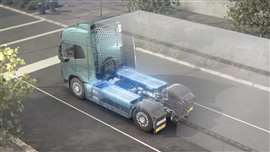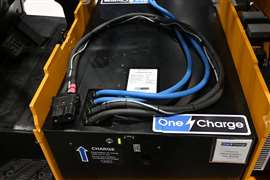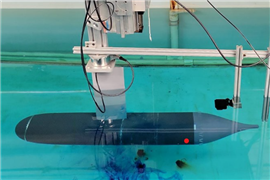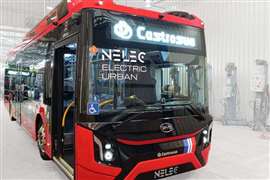Read this article in 中文 Français Deutsch Italiano Português Español
Volvo Cars to launch first commercially available EV battery passport
10 July 2024
The introduction comes well ahead of the 2027 deadline imposed by EU regulations.
In February 2027, battery passports — digital records containing complete information about the battery — will be required for many batteries used in equipment and vehicles in the European Union pursuant to EU Regulation 2023/1542.
Reuters recently reported that Volvo Cars is slated to launch the first such battery passport for one of its battery electric vehicles (BEV), the EX90 SUV, well ahead of that schedule.
The company developed the battery passport in partnership with UK-based Circulor, the Reuters report said, which maps supply chains for companies using blockchain technology.
Power Progress reported that the EU regulation requires a battery passport to include a broad spectrum of battery data, including its rated capacity, expected lifetime, material composition and carbon footprint.
 Battery packs in a Volvo electric truck. (Photo: Volvo)
Battery packs in a Volvo electric truck. (Photo: Volvo)
According to a Wall Street Journal story about Volvo’s battery passport, among the information it includes is verified data regarding the battery’s raw materials, the chain of custody of components and recycled material.
“The purpose of the battery passport is to source more responsibly and prove you are trying to improve the sustainability of batteries,” Doug Johnson-Poensgen, CEO and founder of Circulor, told the Wall Street Journal. “The main driver is to effectively shine a light into the deeper parts of a supply chain that were previously pretty opaque.”
The information contained within the passport will be available via an app, which can be accessed when scanning a QR code on the driver’s side door, the Wall Street Journal said.
When reached for comment about what this development meant for battery passports in Volvo Trucks, the Volvo Group said via email that it doesn’t speculate on future measures. However, the company said its Sustainable Minerals Program focuses on various materials related to vehicle batteries and other components, such as tin, tantalum, tungsten, gold and cobalt.
“These materials are part of our global supply chain and used in many components,” Volvo Group said. “We are continuously reviewing for additional critical raw materials and minerals to be in scope for the program. In addition, our supply partners have to go through the due diligence, which includes a commitment to our Supply Partner Code of Conduct, Sustainability Self-Assessment Questionnaire and valid score, on-site audits, compliance and being conformant with the Volvo Group Sustainable Minerals Program.”
Volvo Group added that its Sustainable Minerals Program is built on the five-step framework of the Paris-based Organization for Economic Cooperation and Development (OECD) Due Diligence Guidance for Responsible Supply Chains of Minerals from Conflict-Affected and High-Risk Areas as well as the tools of the Responsible Minerals Initiative, of which Volvo Group is a member.
Volvo Cars is owned by China’s Geely Holding Group, while Volvo Group is a separate company based in Gothenburg, Sweden.
In a story by sustainable mobility publication Zag Daily, Johnson-Poensgen said “Volvo has ‘put a flag in the sand’ showing that these digital passports are possible at production scale.”
Volvo Group is also a member of the Belgium-based Global Battery Alliance (GBA), a multi-stakeholder public/private alliance of over 160 members, the 2019 vision report of which included the idea of battery passports and was referenced in the preamble to the EU battery supply chain regulation.
A couple weeks after the Volvo Cars announcement, GBA announced the launch of its second wave of battery passport pilots. In its press release, the organization said this wave would establish the passport’s minimum viable product (MVP) as well as offer a product-level environmental, social and governance (ESG) score.
“Pilot participants will report on seven rulebooks developed by multistakeholder working groups convened by the GBA, which set out harmonized sustainability performance expectations for seven key metrics,” GBA said. These include:
- The greenhouse gas rulebook, which will be used to calculate the carbon footprint of the battery
- Human rights and child labor indices
- The newly developed rulebooks on forced labor, indigenous peoples’ rights, biodiversity and circular design of batteries
“Based on the reporting by value chain participants across the pilot consortia, differentiated ESG scores will be issued — a major steppingstone incentivizing companies to go beyond compliance in addressing sustainability risks and impacts along the value chain,” GBA added.
Circulor is one of the seven track-and-trace solution providers taking part in the pilots.
POWER SOURCING GUIDE
The trusted reference and buyer’s guide for 83 years
The original “desktop search engine,” guiding nearly 10,000 users in more than 90 countries it is the primary reference for specifications and details on all the components that go into engine systems.
Visit Now
STAY CONNECTED




Receive the information you need when you need it through our world-leading magazines, newsletters and daily briefings.
CONNECT WITH THE TEAM















